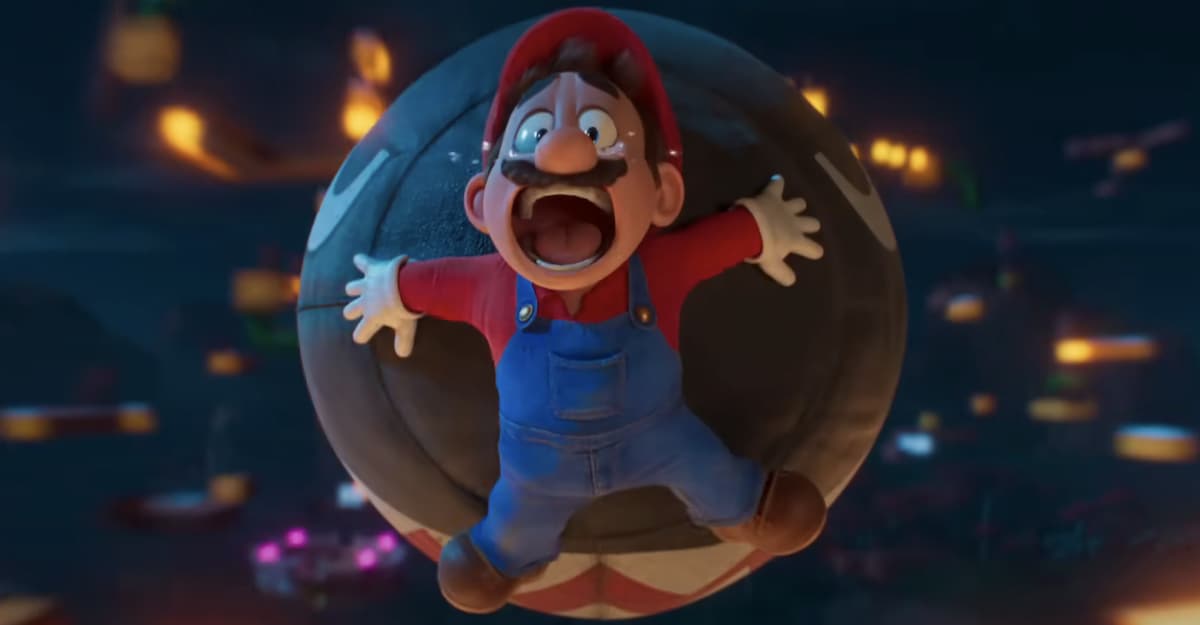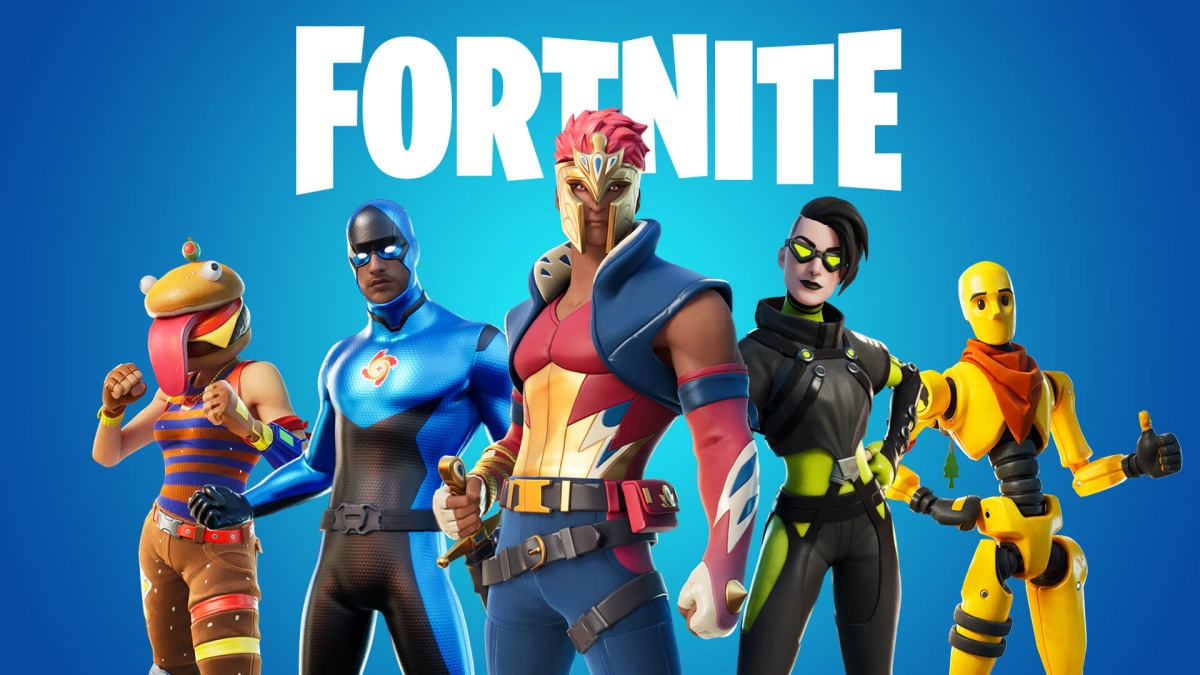When the second trailer for the upcoming Super Mario Bros. Movie was released, I had many emotions. Overall, I do feel like Illumination seems to be doing well with the impossible task they were given—ie, to make a film adaptation of one of the most beloved gaming franchises in the world. I’m overall excited for the film (thank you, Jack Black). My complaints, however, are twofold. One is the same complaint that everyone else has: that Chris Pratt’s performance seems like he was dragged into the studio early in the morning with a giant hangover, preventing him from communicating any genuine excitement—or even any human emotion of any kind.
My other complaint, however, is relatively niche. I’ve only seen a very small subset of the internet—musicians who are also nerds—talking about it. But even though it’s niche, it has a profound impact on the film. That’s why I deeply believe this complaint is worth bringing to people’s attention. It’s worth some critical thought. My other complaint is about the film’s score.
Chances are, if you’re a human who has engaged with pop culture in the last few decades, you are somewhat familiar with Koji Kondo’s classic score for the original Super Mario Bros. games. Kondo’s scores remain some of the most iconic game music of all time, even despite the chiptune nature and four-voice restrictions that the pre-Nintendo 64 systems required. As with his work in The Legend of Zelda franchise, Kondo’s scores are simple yet memorable. They’re spacious and repetitive, but complex. They don’t talk down to the audience. They have an inherent sense of motion. And most importantly with Mario games in particular, the scores are characterized with an unmistakeable playfulness. Take a listen to some samples below to see what I mean.
Even after the release of the N64 opened up possibilities for the usage of MIDI instruments (ie, computer files that imitate other real-world instruments) and more voices, the basic characteristic of Kondo’s music remained the same. No need to over-saturate the music. No need to lose that sense of almost childlike playfulness.
The most intense boss fight theme that Kondo wrote for Mario might be for Super Mario World. Others, such as the final fight in Super Mario 64, have a less active, more ambient score. But the music accompanying the final Bowser fight in Super Mario World is, at times, incredibly easy to imagine with modern breakbeat drumming. Think of this as Kondo’s biggest extreme. He hits you over the head in a way where the sheer volume of the notes screams “BOSS FIGHT.”
Now that you have all of this music in your head, let’s re-watch the second Mario trailer and pay attention to the music. We’re not listening for a perfect reproduction of Kondo’s score. I’m only bringing up Kondo specifically, instead of more recent Mario games, because he’s listed as a co-composer for the film on IMBd, meaning the music Kondo wrote is being used. It’s just being re-arranged. I was not expecting Kondo’s score “verbatim” in this film. Kondo was writing for late 80s/early 90s video games, and this is a feature film made in 2022. Plus, game scores and film scores serve different purposes and don’t translate directly from one to the other. Instead, we’re listening for the character of the music.
What does this trailer’s music sound like to you? It sounds less like a Mario game and more like a stereotypical Hollywood action film, doesn’t it? So now’s a good time to ask the question which has been eating at me: why the hell would they do that?!
Unfortunately, my best guess is that it comes down to Hollywood norms. They didn’t want this to sound like a “children’s movie” (heaven forfend!), so they made it sound like an action movie instead. Thanks to composers like Hans Zimmer (who is really a huge office of interns and assistants doing work under the Zimmer name, a little Hollywood secret for you), film music has narrowed in on a very narrow set of cues to tell you that something is action-packed or intense: the low, reverberant drum hits; the low brass drone; the string glissando leading up to a moment of pregnant (and short-lived) silence before another low drum hit-plus-brass note. That is what this score sounds like. Absolutely nowhere is that sound present in the actual Mario games.
In the words of a Tweet which just-so-happened to be published on the same day as the first Mario trailer:
It’s not that Hans Zimmer writes (all) bad music. Some Zimmer scores are great—I genuinely loved the score for the recent Little Prince film. But most of it is formulaic and predictable. And Hollywood loves nothing if not a good formula. Zimmer isn’t the composer for The Super Mario Bros. Movie. That would go to Brian Tyler, whose credits include most entries in The Fast And The Furious franchise and Marvel films like Avengers: Age Of Ultron. There are some animation credits, including Chip ‘n Dale: Rescue Rangers, but make no mistake: Illumination picked an Action Guy to score this movie.
I don’t want to knock on Taylor or his music. I do want to knock on the choice of genre. Why the hell does Mario have to sound like an intense Hollywood action movie? Is someone at Illumination worried that we won’t think it’s action-packed if that particular kind of drum hit isn’t in the score? Just as Chris Pratt’s normal-ass voice takes away from the illusion that this is the same video game character we all love, I would argue that having a Hollywood action score where something more whimsical and playful would otherwise have been placed takes away from that illusion just as severely. If not more so.
Do we really want a Hans Zimmer cover of “The Super Mario Bros. Theme?” No. But we don’t need Kondo’s exact version here, either. This can all be filed underneath the overarching problem of Hollywood studios sticking to formulas and playing it safe, instead of taking a chance and doing something even slightly out of the box. But it turns out that a Japanese video game and a Hollywood action film have pretty different tones. Why would you bend to accommodate that tone in the animation, but not the music?
(featured image: Illumination / Nintendo)










Published: Nov 30, 2022 07:17 am